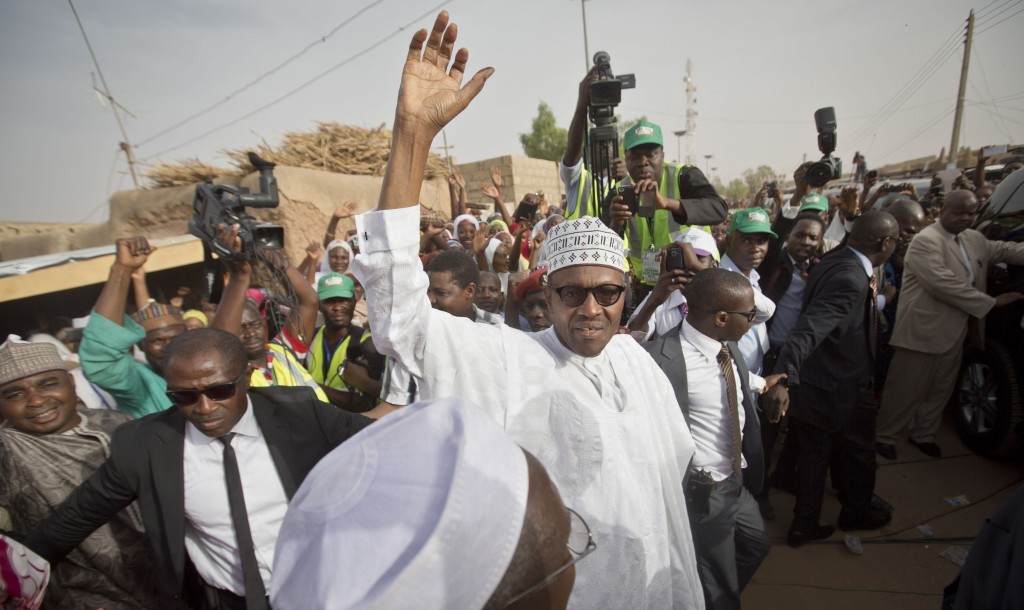
Robert Dowden had presciently anticipated Nigeria’s presidential electionsas the most important African event of the decade.
Last week’s elections saw the tenacious opposition candidate former general Muhammadu Buhari triumph over incumbent President Goodluck Jonathan. This was Buhari’s fourth consecutive attempt for the presidency. He had a short spell as military head of state in 1984/85.
Nigerian elections are usually characterized by vote-rigging; inevitability of incumbents winning as they violence and state’s petro-resources to capture the electoral process; and losers resort to violence.
Last week’s elections broke the old traditions as observers judged them as exceptionally peaceful, free, fair and credible. Nigeria’s electoral commission introduced smartcards as innovative means of identifying voters – an innovation which singularly reduced the space for vote rigging.
For the first time in Nigeria, the incumbent president actually lost the national elections and then openly conceded defeat! Incumbent African governments would typically annul awkward election results or orchestrate violence to keep awkward winners from office.
Nigeria faces extraordinary challenges. On the security front, there is Boko Haram, the Islamic terrorist group that has waged war in North East Nigeria and infamously abducted over 200 schoolgirls from the Chibok girls’ school.
There are high expectations that Buhari as a former general who defeated another Islamic terror group in 1984/85, can quickly defeat Boko Haram. Perhaps more challenging will be defeating grand corruption, violent crime and a general climate of insecurity across parts of Nigeria.
Nigeria is one of the world’s petroleum-rich states. Yet Nigeria does not produce enough electricity and refined petroleum to power Nigeria’s economy. The privatization of the power sector was achieved in 2013.
However experts agree that the power reform programme will have to be redesigned if Nigeria is to achieve its target of increasing grid capacity from current 4000MW to 40,000MW by 2020. Nigeria’s power programme presents signal opportunities for foreign investors as the supply chain needed to accomplish the programme will involve some US$3.5 billion in annual expenditure over the next 10 years.
The petroleum sector is threatened by insecurity, outdated and overreaching regulation, corruption, host community antagonism, marginal refining capacity and stalled whole-sector reforms which started in 2008.
The Petroleum Industry Bill (PIB) is the reform instrument by which Nigeria seeks to transform the entire sector. The inconclusive PIB has slowed new investment and partly caused international oil companies to offload some of their Nigerian oil-fields.
The Buhari government will have redesign and drive the reform programmes. Key to success will be crafting an integrated approach to reforming both petroleum and power sectors.
Other challenges awaiting the Buhari government include poor infrastructure across Nigeria’s vast expanses; high unemployment particularly amongst youths and graduates; reducing the burden of government as recurrent expenditure greatly exceed funds available for growth and industrialization; the neglected public education sector; Nigeria’s federal structure and weakly constituent states will need redefining and strengthening.
When all is considered, the challenges facing Nigeria pale into insignificance when compared with her extraordinary potentials and prospects. Buhari is respected as a strong, disciplined, experienced and incorruptible leader. Some members of his team have track records of performance in public office. Nigeria is the largest economy in Africa, with a strong middle-class, a fairly enlightened population, abundant unexploited mineral resources and superlative opportunities across the economy.
Will Buhari and his team prove to be the ingenious leadership that transforms Nigeria’s great potentials into reality?
Dr Mark Osa Igiehon, is a fellow with the Aberdeen University Centre for Energy Law (AUCEL) and Chair of the Oil & Minerals for Good World Forum.